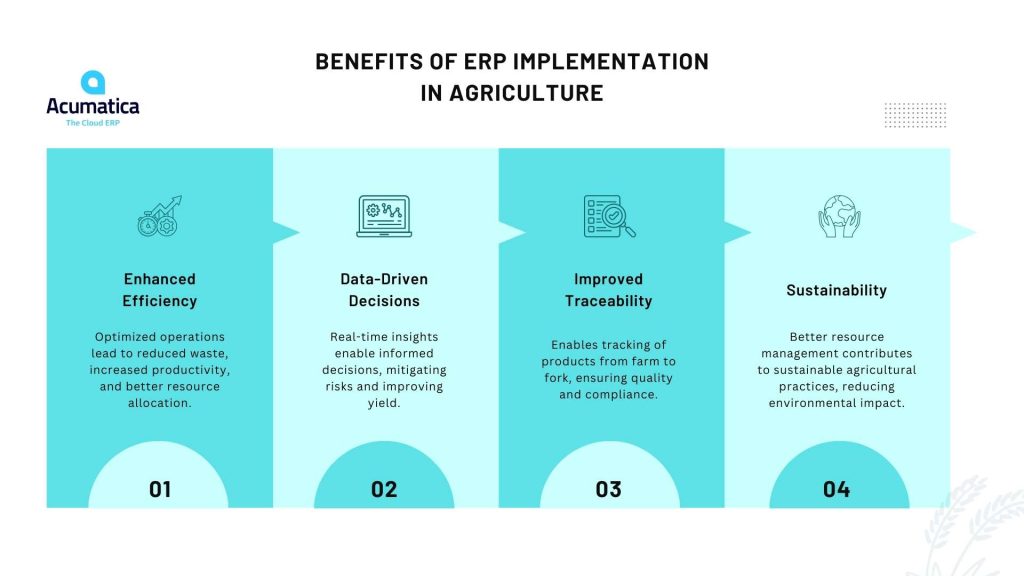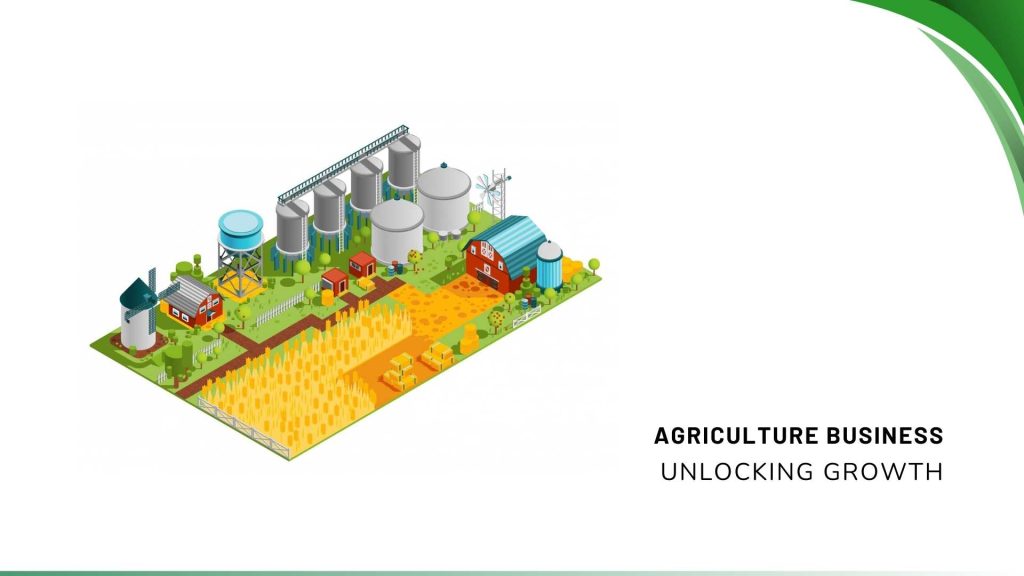Agriculture, the cornerstone of civilization, has evolved drastically over the years. Today, it’s not just about planting and reaping crops; it’s a complex ecosystem involving technology, logistics, and efficient management. In this digital age, integrating Enterprise Resource Planning (ERP) systems has brought a paradigm shift in the agriculture sector, streamlining operations, enhancing productivity, and ensuring sustainable growth.
ERP Implementation in Agriculture: A Transformative Approach
Understanding ERP in Agriculture
ERP, a comprehensive software solution, consolidates various business processes into a unified platform. ERP integrates diverse agricultural functions, such as crop planning, inventory management, supply chain, financials, and compliance. This integration provides a holistic view of operations, enabling informed decision-making and efficient resource allocation.
How Does It Work?
In agriculture, ERP systems gather data from multiple sources like weather forecasts, soil health reports, machinery diagnostics, and market trends. These data points are then processed, analyzed, and presented in a user-friendly interface. By leveraging real-time insights, stakeholders can make data-driven decisions, optimize processes, and mitigate risks.
Features That Transform Agriculture ERP
- Crop Management: Monitors crop lifecycle, from planting to harvest, optimizing inputs like water, fertilizer, and pesticides.
- Inventory Control: Tracks stock levels, ensuring timely procurement and minimizing wastage.
- Supply Chain Integration: Streamlines the movement of goods from farm to market, reducing delays and costs.
- Compliance and Regulatory Adherence: Assists in adhering to industry standards and regulations, ensuring sustainability and quality control.

ERP Trends that are Leading the Agriculture Industry
These trends significantly influence the agricultural landscape, particularly with incorporating ERP systems.
Super-efficient Production Management
Integration of IoT and Smart Sensors: IoT-enabled devices and smart sensors transform farms into intelligent, data-driven ecosystems. These tools collect real-time data on soil moisture, weather conditions, crop health, and machinery performance. When integrated with ERP systems, this data provides insights for precise resource allocation, optimizing planting schedules, and minimizing resource wastage.
Predictive Analytics for Crop Planning: ERP systems equipped with predictive analytics use historical and real-time data to forecast crop yields, disease outbreaks, and optimal harvesting times. It empowers farmers to plan effectively, adjust cultivation strategies, and mitigate risks, ultimately enhancing overall productivity.
Use of Cutting-edge Agriculture Tech and Equipment
Robotics and Automation: Robotics and automation are revolutionizing farm operations. ERP-integrated systems manage and coordinate these technologies, enabling tasks like autonomous seeding, precision spraying, and robotic harvesting. It reduces labor costs and ensures precision and consistency in agricultural tasks.
Drones and AI-powered Imaging: Drones equipped with AI-powered imaging technology capture high-resolution images of fields. ERP systems analyze this data to identify areas needing attention, such as pest infestations or nutrient deficiencies. These insights facilitate targeted interventions, optimizing resource usage and improving crop health.
Advanced Analytic Features and Capabilities
Machine Learning for Decision Support: ERP systems employing machine learning algorithms every time from agricultural data. They provide farmers with personalized recommendations and decision support, helping them optimize planting patterns, crop rotations, and resource allocation based on historical and real-time data.
Data Visualization and Reporting: Advanced ERP systems offer robust data visualization tools. These enable farmers to generate intuitive reports and dashboards, simplifying complex data sets into actionable insights. Visualization tools assist in monitoring trends, identifying anomalies, and making informed decisions promptly.
Streamlined Supply Chain Management
Real-time Inventory and Logistics Management: ERP systems streamline supply chain activities by providing real-time visibility into inventory levels, logistics, and distribution networks. It ensures efficient procurement of raw materials, timely delivery of produce to markets, and minimizes waste through optimized storage and transportation.
Blockchain for Traceability: Some ERP systems leverage blockchain technology to create immutable records of the entire supply chain. It ensures transparency and traceability, enabling consumers to track agricultural products’ journey from the farm to the market shelves and fostering trust and accountability.
ERP Implementation Steps in Agriculture
- Assessment: Evaluate current processes and identify key pain points.
- Planning: Set clear objectives, choose suitable ERP software, and outline the implementation roadmap.
- Customization and Integration: Tailor the ERP system to align with specific agricultural needs and integrate it with existing tools.
- Training: Educate stakeholders on system usage and best practices for effective utilization.
- Testing and Deployment: Conduct thorough testing before full-scale deployment, ensuring functionality and reliability.
How Can Acumatica Enhance?
Acumatica, with its adaptable and comprehensive ERP solutions, stands as a transformative force in the agriculture industry. Its customizable features, from crop management to supply chain integration, streamline operations and empower farmers with real-time insights.
Acumatica’s ability to incorporate cutting-edge technologies like IoT, predictive analytics, and AI-driven decision support amplifies efficiency, ensuring optimized resource allocation and improved yield.
By fostering a seamless blend of technology and agriculture, Acumatica paves the way for sustainable growth, enabling farmers to navigate complexities and elevate their businesses to new heights of productivity and success.

Vijay comes with a vast experience in ERP and enterprise solutions space with about 20 years of experience in various packaged application like Acumatica, SAP, Orion, Salesforce.com, SugarCRM and, SalesLogix.

